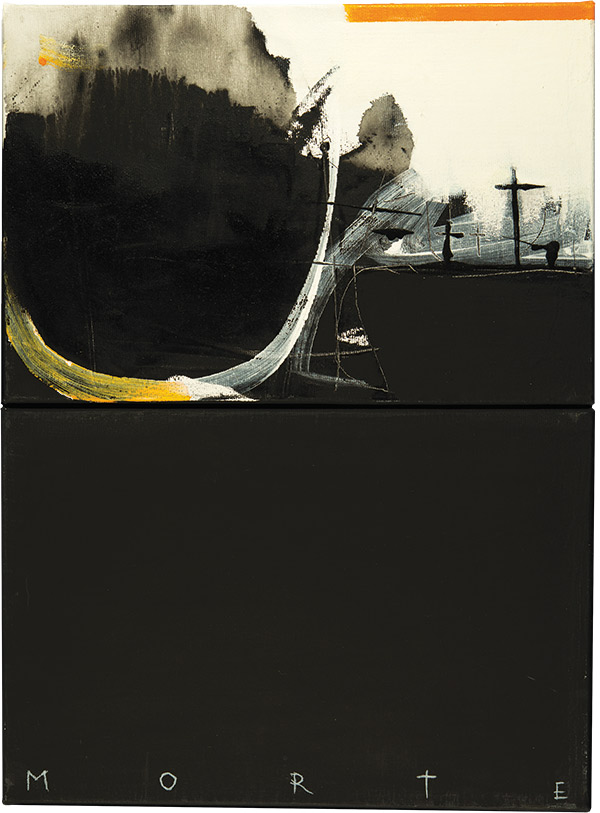Subtotal: $
Checkout
2023’s Top Ten
In case you missed them: here are the most popular Plough articles published in 2023.
By Shana Goodwin
December 28, 2023
Here, in ascending order, are the ten most popular articles Plough published in 2023, based on the number of readers online.
10. Selling Friends by Clare Coffey
Multi-level marketing (MLM) calls for what Aristotle calls friendship of utility, in which two people are bound together by their usefulness to each other, or their common pursuit of utility. This is what your online friend’s hyperingratiating sales pitch is trying to achieve, if clumsily and one-sidedly. Your friend is trying to maintain a friendship with you in hopes that you will buy her product. But for the most successful MLM saleswoman, friendship is not the means to the sell; it is the thing being sold.

9. My Mind, My Enemy by Sarah Clarkson
I was seventeen when my mind became my enemy. I still find it hard to describe the experience of mental illness, of having a psyche you cannot control. From one day to the next, I found that this friend of my childhood bombarded me with almost uninterrupted images of explicit violence, sexual perversion, and disaster. What I saw was so real, evoking such a physical reaction of panic and such a pervasive sense of shame that I became almost unable to cope with normal life. I barely slept. I withdrew from my plans for college. My sense of self disintegrated. My health broke. My mind, this most intimate of companions, had become my enemy, and she was formidable.

Photograph by Andrey Metelev. Used by permission.
8. The Library at Home by Zito Madu
It was important to my parents that we have a library at home. After years of moving around, including across continents, when we finally settled in the house where my parents still live today, an entire room was set aside to be the library. It was tremendously impractical with our family of eight, with everyone doubling up to fit in the limited space. The use of another bedroom would have alleviated pressure, but my parents refused that possibility. The room was the library and that was that.

Photograph by Haley Carman.
7. Just Your Handyman by Kurt Armstrong
Some people know how to build high-rise towers. Is this what I should aspire to? My life and my work are so tiny. I feel constant pressure, almost entirely of my own making, to be more driven, to aspire to larger public work, something grander, more life-changing. When I see what others are capable of, I feel like I should do more: expand my business, build homes rather than just fixing them. Build more, earn more, write more, do more, be more. Am I doing enough? Should I be doing more? And what should I want for my son? How pleased I would be to watch him exceed everything I am and the things I can do. Is it my job to push him to aim higher, strive for more?

Raymond Logan, Dad’s Drill, oil, 2020. Used by permission.
6. Zero Episcopalians by Benjamin Crosby
It is a strange time to be a young minister. I am thirty-two years old, and the church in which I am ordained, the Episcopal Church, has a mandatory retirement age of seventy-two, meaning that I have up to forty years of ministry ahead of me. I fully expect my denomination to be nearly unrecognizable at the time I reach retirement age. Our denomination is overwhelmingly old and white, and mostly made up of small churches in parts of the country that are not growing; our failures at evangelism and retaining the people born in our church mean that demographers predict that our numbers will hit zero around 2040.

Photograph by Vyacheslav Lopatin / Alamy Stock Photo. Used by permission.
5. A Father’s Legacy to His Son – and His Country by Robert Ellsberg and Chris Zimmerman
In October 1969 my father, Daniel Ellsberg, took me out for lunch and told me about his plans to copy what became known as the Pentagon Papers. His intention was to make them available to Congress, and he had some hopes that this might help end the war, though it would involve the risk of prison. He had been sharing with me books and writings by Gandhi, Thoreau, Martin Luther King Jr., and other teachers of nonviolence, so I understood what he was talking about it. He asked if I would help him. So that afternoon I spent the day at a Xerox machine copying top secret documents. I was thirteen.

One last trip to the beach – father and son near Berkeley, California, April 2023. Photograph courtesy of Robert Ellsberg.
4. Living with Religious Scrupulosity or Moral OCD by Alan Noble
Growing up evangelical, I was taught that your personal conscience is law. God uses the Holy Spirit to guide and convict us through our innermost selves. So when the conscience speaks, not to listen is a sin. What nobody told me was that your conscience, or what feels like your conscience, can be entirely mistaken through no fault of your own. Just like it’s possible to feel no guilt when you should, it’s possible to feel guilt or anxiety or shame over things that you shouldn’t feel bad about at all. Nobody warned me about moral scrupulosity, the type of obsessive-compulsive disorder (OCD) I suffer from. Nobody warned me how anxiety and fear can take the thing you care about most – your faith – and turn it against you.

Photograph by Majid Rangraz.
3. Where Are the Churches in Canada’s Euthanasia Experiment? by Benjamin Crosby
“Sophia,” a fifty-one-year-old woman who suffered from multiple chemical sensitivities (MCS), could not obtain an apartment that would meet her needs. While MCS is difficult to manage, symptoms can improve significantly with decent housing. “The government sees me as expendable trash, a complainer, useless, and a pain in the ass,” she said in a video a few days before she was killed via MAID in February 2022.

Photograph by Andrey Metelev. Used by permission.
2. God’s Purpose in Your Pain by Rick Warren
Both believers and unbelievers experience trials. But Christians have a hope to hold on to that not only comforts us, but also empowers us to bless others. What is our hope in pain? It is the promise of God that he can bring good out of anything, even pain, if we trust him.

Vinicius Barajas, Easter Triptych II, 2018. Used by permission.
1. What Is Time For? by Zena Hitz
What is leisure, and why is it necessary for human beings? The leisure that I am interested in is not the first thing you may imagine: bingeing Netflix on the couch, lounging at the beach, attending a festive party with friends, or launching yourself from the largest human catapult for the thrill of it. The leisure that is necessary for human beings is not just a break from real life. What we are after is a state that looks like the culmination of a life. Let’s pause and ask ourselves: What parts of our lives seem to be the culminating parts, the days or hours or minutes where we are living life most fully? When do you stop counting the time and become entirely present to what you are doing? What sorts of activities are you engaged in when this takes place?

Brian Kershisnik, Divine Intervention, oil on canvas, 2016. Used by permission.
Already a subscriber? Sign in
Try 3 months of unlimited access. Start your FREE TRIAL today. Cancel anytime.







Kathleen Zander
"Strange Mercies" by Sharon Rose Christner captured the largesse of a Rome hospital opening its grounds as nighttime shelter for the homeless. I could almost hear the echoes in the marble hallways as the destitute settled in chairs or the floor, the sound of impersonal mercy but mercy nonetheless. Christner reminds us "People seeking mercy will go wherever mercy can be found" and I thought sadly of my local church that stopped providing beds for the Pads program because of security concerns.
Linda wilson
The article I liked most was “Students Brave the Heat“ By Leah Libresco Sargeant. I think that as a culture we do not know how to talk to each other when we disagree. I think it is important to value disagreement, that is how we grow and develop our thinking. Both sides to a disagreement sharpen their thinking by honestly and courteously debating what they think. My favorite article from the list was 8. “The Library at Home” by Zito Madu. I am an English teacher with dyslexia. As a child I loved going to the library, but could not finish most books I checked out in the time given to read them. As a child my dream was to have my own library because I loved reading and stories so much. I have realized my dream in many ways and have a home library of more books than I can count (or easily access). Books and libraries are important to me and this article provoked many thoughts and memories. Many years ago, in a blog, I wrote about how I feel about books and libraries. I read an article in The New Republic, “Voluminous” by Leon Wieseltier that talks about how the books we read shape the people we become, about how some books will shape our biography. They do not just entertain us or move us, but become us, shape our memories and who we become, or as Wieseltier says “Many books are read but some books are lived, so that words and ideas lose their ethereality and become experiences, turning points in an insufficiently clarified existence and thereby acquire the almost mystical (but also fallible) intimacy of memory. In this sense one’s books are one’s biography.” A library is more than a collection of books, it contains those books with which we have established an intimacy; we have conversed with them, written in them and they have written on us. My library suggests a lot about who I am. It is very diverse everything from Proust to Dr. Seuss; from the earliest myths and folk tales to “The Changing Light at Sandover.” It is very disordered and serendipitous, with stacks in front of books put away in the more conventional fashion, with many that were purchased on a whim or because they addressed a topic that at the time fascinated, and probably still fascinates, me. They are hugely overstocked suggesting an appetite that it is impossible to satisfy and that few, and certainly not me, are capable of consuming so much. It suggests my curiosity on subjects ranging from the American West to the Pre-Raphaelite Brotherhood, to astronomy, psychology, and “great” thinkers past and present. But mostly there are stories from Scheherazade to Chekhov, from the mighty walls of Priam to Toad Hall and the Misty Mountains. Cordially, John Wilson, Jr.
Elizabeth Slaughter
That is an excellent list with many of my top reads on it. I especially treasured “Just a Handyman” since he echoed my feelings of failing to live up to some imagined ideal self.